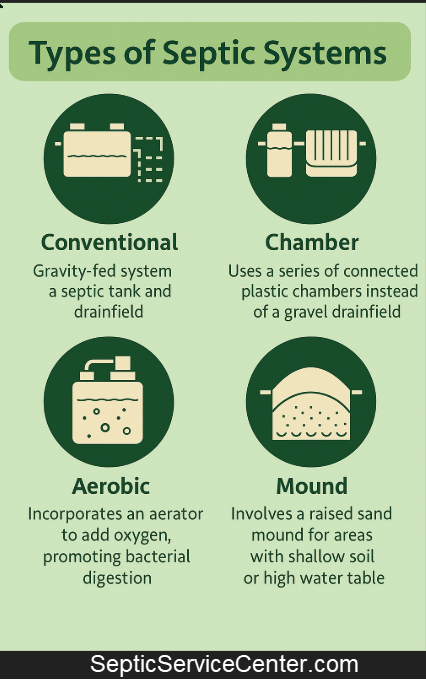
So you’re buying a house, and it has a septic system. No big deal, right? It’s a huge deal because septic issues can cost thousands if you don’t know what to look for.
This guide covers everything you need to know before you sign the papers—inspections, red flags, maintenance history, and how to protect yourself as a buyer.
Why It Matters
Unlike a city sewer connection, a septic system is 100% your responsibility. If it fails, it’s on you—and full replacement can cost $10,000–$30,000 or more.
Checklist: What to Ask and Look For
- Where is the system located? (Get a map if possible.)
- When was it last pumped? (Should be every 3–5 years)
- Any service or inspection records?
- How old is the system? (Most last 20–40 years)
- Is the tank concrete, plastic, or steel? (Steel tanks often rust out)
- Has the seller had any issues? (Backups, odors, wet spots?)
- Are there restrictions on upgrades or expansion? (Check local codes)
Get a Septic Inspection—Not Just a Home Inspection
A general home inspector won’t fully inspect the septic system. Hire a licensed septic contractor to:
- Locate and open the tank
- Check baffles, filters, and connections
- Inspect the drain field
- Measure sludge levels
- Run water tests if needed
Tip: Request pumping at the time of inspection so issues are easier to spot.
Red Flags to Watch Out For
- Unusually green grass over part of the yard
- Soggy areas or standing water
- Foul odors near the tank or drain field
- No records or recent pumping info
- The system is more than 25–30 years old
- Seller reluctant to let you inspect it
Negotiation Tips
- If the inspection reveals issues, ask the seller to repair them or reduce the price.
- Ask for a credit toward pumping if it’s overdue
- In some states, sellers are required to fix failing systems before closing
Final Advice
Septic systems aren’t scary when they’re in good shape—but they can be a disaster if you buy blindly. Ask the right questions, get the right inspections, and don’t be afraid to walk if something smells fishy.

New to septic systems? Start with our guide on how septic tanks work to understand the basics.



